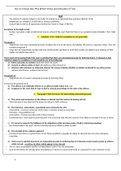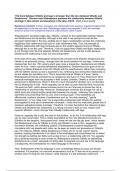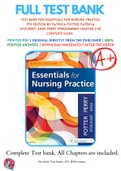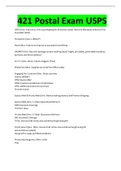Summary
Summary SGS 4 Criminal Litigation LPC (Bail, Plea Before Venue and Allocation of Trial) Lecture, SGS and Solution Notes and Exam Structure (High Distinction)
- Course
- Institution
This document provides the user with how to structure a PBV hearing and bail question in the criminal litigation exam on the LPC. It also weighs up the pros and cons of crown court and magistrate court trials. This also provides an exam structure for a plea before venue allocation of trial and bail...
[Show more]






